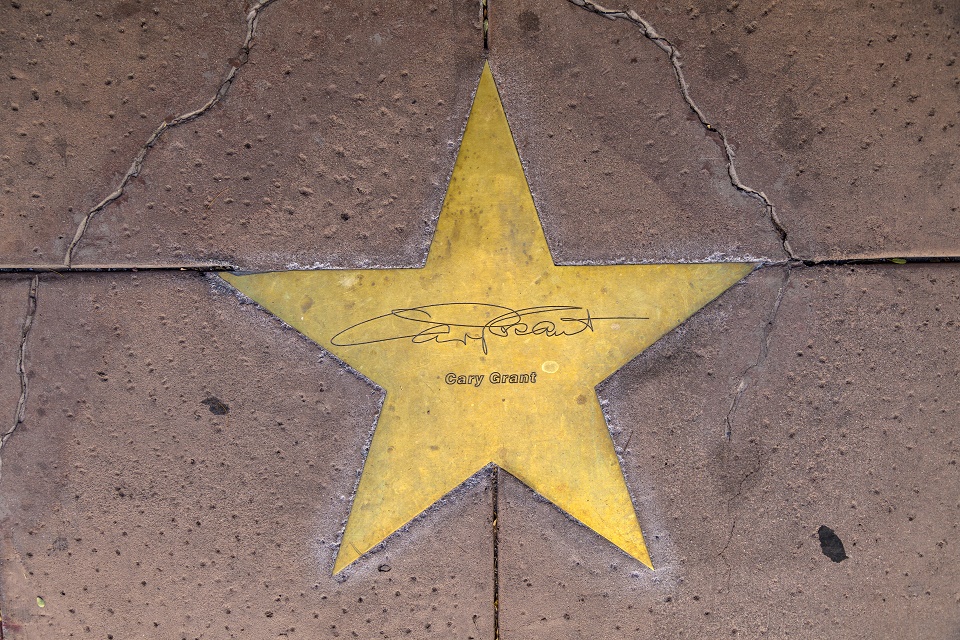Archie doesn’t offer a linear account of Grant’s life, but instead cuts continuously between his humble English beginnings and later Hollywood success. There’s particular focus on the period during the early 1960s when he pursued, married and divorced the young screen star Dyan Cannon, who was 33 years his junior.
The remarkable transformation in Grant’s fortunes is evoked by details of colour and setting. Dull browns and greens predominate in the Bristol sequences, whereas the scenes set in California glow red, orange and yellow. The cramped backyard of Archie Leach’s childhood home gives way to the spacious garden of Cary Grant’s Los Angeles mansion, replete with swimming pool.
Yet the fluid composition of the drama suggests that, for Grant, there was no definitive break with his past. Young Archie, carrying memories of material and emotional deprivation in England, remained with him even as Grant lived a glamorous alternative life in the US.
Light and dark
Archie’s account of classic Hollywood is, at times, slight rather than probing. While we see Grant’s rechristening by a studio that believes his given name of Archie Leach “won’t cut it”, we seldom observe the workings of the promotional machinery that consolidated his star image.
Fleeting traces, rather than thick evidence, are provided of the “pin-ups, public appearances, studio handouts” and media interviews that were central to the manufacture of a mid-century movie star.
Yet Archie still represents a striking addition to the category of the film star biopic. In demystifying its charismatic subject, it observes genre norms: recall how stars are treated frankly by movies such as Chaplin (1992) and The Life and Death of Peter Sellers (2004). What is distinctive about this series, however, is that it shows the discomfort of a Hollywood icon usually taken to be the epitome of unruffled poise.
Film historian David Thomson argues that Grant’s screen presence was more complex than is often allowed. He could be “attractive and unattractive simultaneously”, radiating both “light” and “dark”. This sense of Grant’s duality, of sun and shadow coexisting, runs through Archie.
But the series does not look for Grant’s many sides in his film performances. Other than showing him with Mae West in She Done Him Wrong (1934), say, or with Audrey Hepburn in Charade (1963), Archie generally keeps away from Hollywood studios.
Nevertheless, in Isaacs’ fine performance as the older Grant, his charm is positioned as adjacent to his cruelty. The portrayal of his relationship with Cannon (Laura Aikman), especially, shows Grant exhibiting increasingly controlling behaviour.
Continues at…

Read the full article by Dr Andrew Dix, Senior Lecturer in American Literature and Film, at The Conversation.
